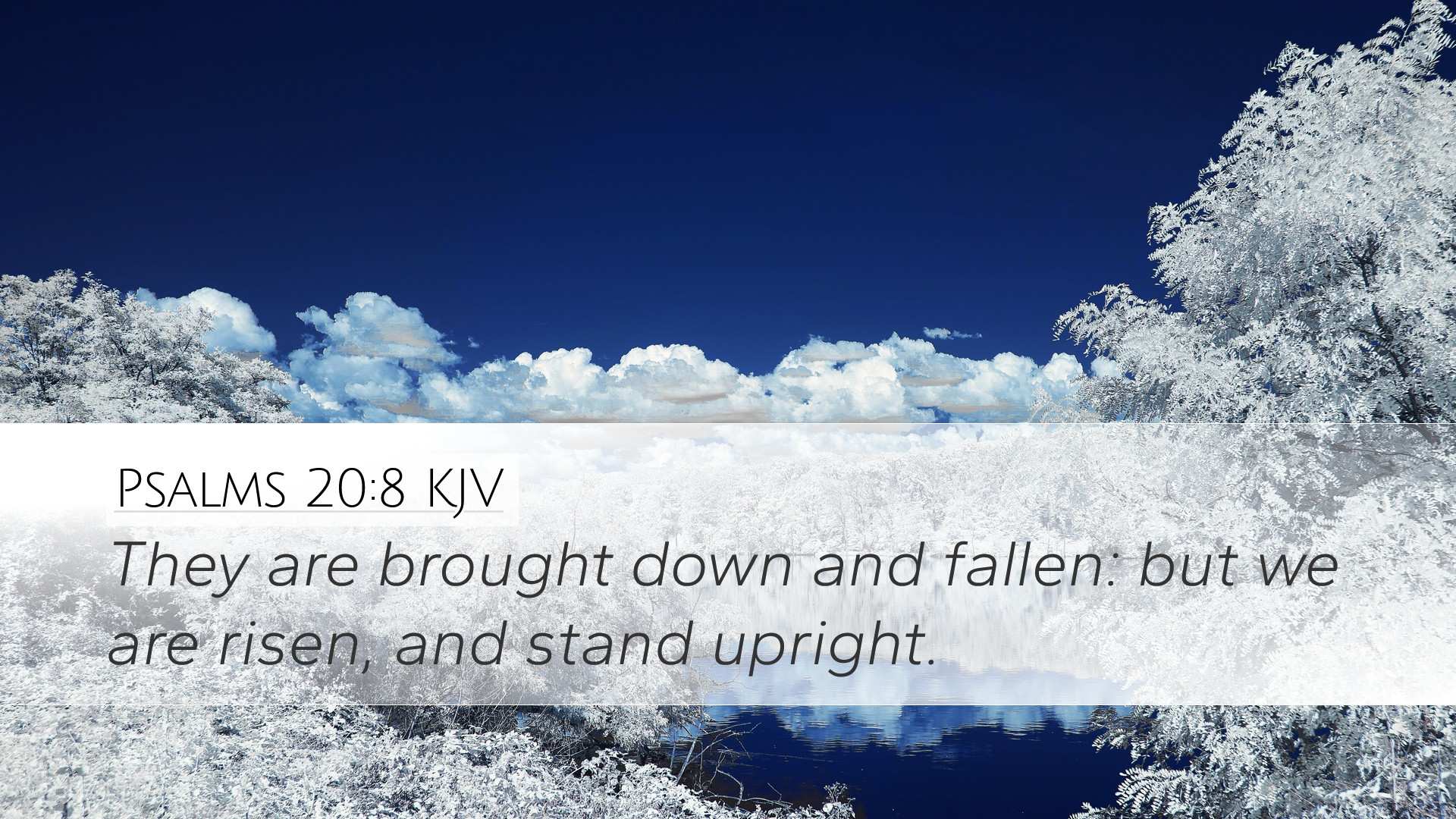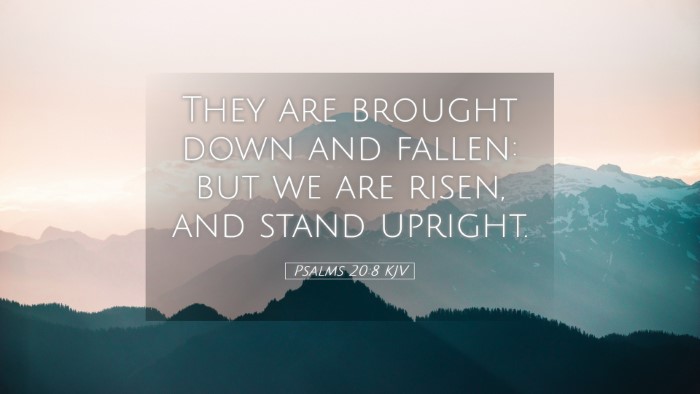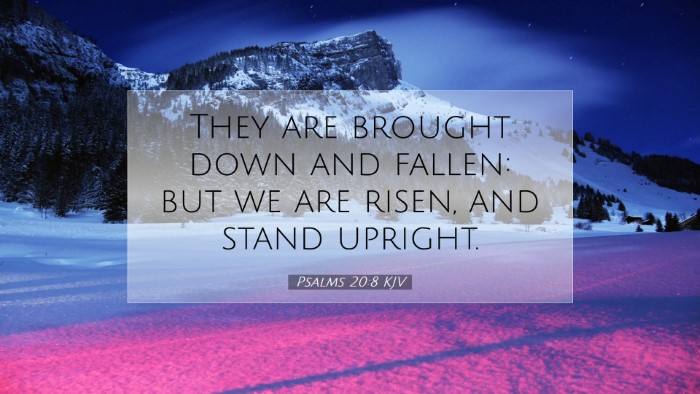Commentary on Psalms 20:8
Psalms 20:8 (KJV): "They are brought down and fallen: but we are risen, and stand upright."
Introduction
This verse, nestled within the context of a Psalm invoking divine assistance, elicits reflections on the nature of trust in God versus reliance on worldly powers. It stands as a remarkable declaration of triumph over adversities faced by the faithful.
Historical Context and Structure
The Psalm is classified as a royal psalm, particularly one that might have been recited during a time of national crisis or call to arms. The contrast outlined in this verse between the fate of the enemies of Israel and the strength of God's people demonstrates a powerful theological assertion: God’s favor brings resilience and strength.
Insight from Matthew Henry
Matthew Henry emphasizes the importance of divine support in times of distress. He articulates that while the adversaries are "brought down" by their reliance on their own strength, the people of God maintain their position through reliance on divine assistance. This distinction underlines a key spiritual principle: true standing is contingent not on human effort but on God's grace.
Understanding from Albert Barnes
In his exegesis, Albert Barnes notes the ironic fate of the enemies of God, highlighting that, despite their temporary triumphs, they ultimately face downfall. He draws attention to the stability that faith provides to believers, contrasting the bitter end of their foes with the enduring strength found in God. Barnes points out that this verse serves as an encouragement for the faithful to remain steadfast, as victory belongs to those who rely on God’s power rather than their own might.
Insights from Adam Clarke
Adam Clarke's work provides a deep insight into the linguistic structure of this verse. He suggests that the verb tenses convey a prophetic certainty; God’s people are portrayed not just as victorious but as currently embodying resilience. Clarke emphasizes that the faithful are “risen” and “stand upright,” suggesting both physical triumph and spiritual vitality. This duality highlights that the prosperity of the faithful is not merely in their current state, but as a continuing promise of God’s favor.
Theological Implications
Psalms 20:8 serves as a rich theological reminder of God’s supremacy over human endeavors. It emphasizes a crucial biblical narrative: God’s grace elevates His people above worldly distress. Here, we can observe three significant theological implications:
- Divine Assurance: Believers can maintain hope amidst adversity, knowing that God upholds them.
- God as Sovereign: The contrasting fates of the righteous and wicked demonstrate God’s just governance of the world.
- The Nature of True Strength: True success and resilience are found in submission to God’s will rather than human ambition.
Practical Applications
For pastors and theologians, this verse encourages a profound reliance on the Lord during difficult times. The church must embody the truth of this Psalm through steadfast faith, always proclaiming that the basis of victory springs from God's intervention and not merely human endeavors.
For students and scholars, this psalm provides a rich area of study in understanding the relationship between faith and perseverance. By analyzing the literary and historical contexts, they can deepen their grasp of how biblical texts address human struggles and divine providence.
Conclusion
Psalms 20:8 stands as a powerful affirmation of faith, reminding us that while adversaries may falter, those who trust in God are assured of standing firm. As highlighted by the public domain commentaries, this verse encapsulates a core principle of biblical theology: reliance on divine grace leads to resilience and victory. In a world where challenges abound, we are called to reflect on these assurances, encouraging one another in faith and devotion to the Almighty.


